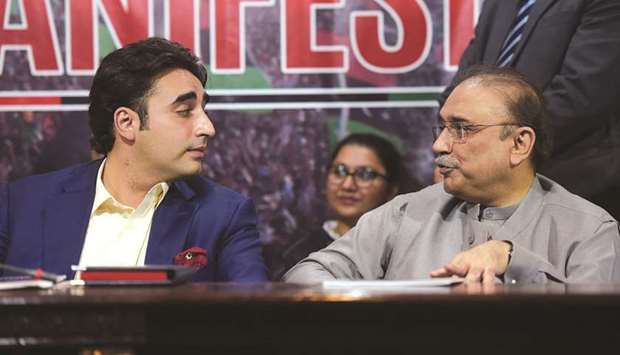A tax directory of Pakistan’s elected representatives for the year 2018 has been published by the Federal Board of Revenue (FBR).
Prime Minister Imran Khan paid Rs282,449 in taxes in 2018.
According to the FBR, in 2018, former prime minister and Pakistan Muslim League – Nawaz (PML-N) leader Shahid Khaqan Abbasi paid the highest tax of Rs241,329,362, whereas Pakistan Peoples Party (PPP) chairperson Bilawal Bhutto Zardari paid Rs294,117 in taxes.
The FBR said that the highest tax paid among the four provincial chief ministers was paid by Baluchistan’s Jam Kamal at Rs4,808,948, while Sindh’s Murad Ali Shah paid Rs1,022,184, and Khyber Pakhtunkhwa’s Mahmood Khan paid Rs235,982.
Punjab Chief Minister Usman Bazdar did not pay any tax during this period.
Former president and PPP co-chairperson Asif Ali Zardari paid Rs2,891,455 in taxes, whereas former Punjab chief minister and PML-N president Shehbaz Sharif paid Rs9,730,545.
Earlier, Prime Minister Khan’s finance adviser, Dr Abdul Hafeez Shaikh, shared details about the tax paid by the parliamentarians, saying that the elected provincial representatives paid Rs340mn in taxes in 2018.
Ninety senators and 311 members of the National Assembly (MNAs) paid a total of Rs800mn in taxes, he added.
Shaikh said that the FBR is “striving for transparency in the tax system”, adding that the tax and audit systems were being automated and computerised.
“We wish to make the FBR’s tax system transparent,” he said, announcing that the institution had made two major decisions. “We are not bringing the tax audit under the control of any officer; it should not be so that a single officer selects the people of their choice in the audit.
“We are trying to have fewer people audited; we do not wish to audit a lot of people.”
“This year, more than 10,000 cases have been selected for auditing,” Shaikh noted, adding that less than 1% of the people would be audited for income tax.
The adviser stressed, however, that the salaried class as well as the beneficiaries of the tax amnesty scheme were not included in the audit.
A 1.7% audit of sales tax would also be carried out, he said.
The adviser said that people wished to be informed about taxpayers and, therefore, the details of those from 2018 “will be published today”.
“The tax details of Pakistan’s elected representatives will be published today [and] a tax directory of parliamentarians is being issued,” he added.
“The government’s basic philosophy is to collect taxes,” he underlined, adding that the ruling Pakistan Tehreek-e-Insaf (PTI) regime wants taxes to be collected in such a way that there were no undue hardships for the business community and no harassment of taxpayers.
Speaking of the industries, budget, as well as the coronavirus pandemic and its impact on the economy, Shaikh said that the taxes on raw materials were reduced to zero and the government maintained subsidies for industries despite challenging circumstances.
“The government is giving subsidies on electricity and gas to industries, as well as subsidies on loans,” he said. “We took immediate steps to improve the economy (without) imposing any new taxes when the Budget 2020 was announced.”
“We are witnessing economic recovery after the coronavirus pandemic,” he added.
“Pakistan’s exports have increased” during the same period, the adviser emphasised.

Bilawal Bhutto Zardari and his father Asif Ali Zardari: paid Rs294,117 and Rs2,891,455 in taxes, respectively.
